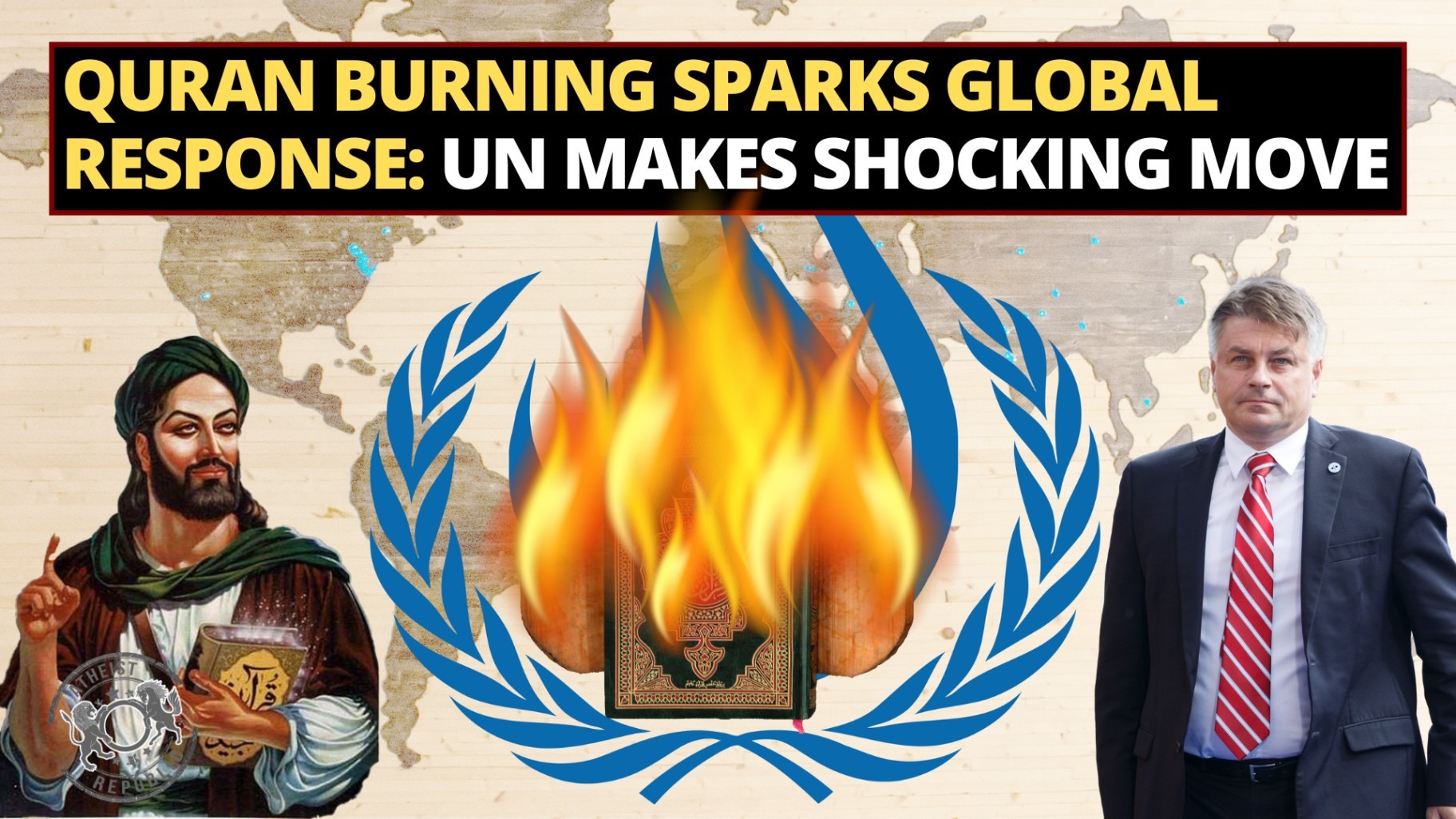
In response to the most recent Quran-burning incident in Sweden, where an Iraqi immigrant burned the religious book in front of a mosque in Stockholm last June, the United Nations Human Rights Council (UNHRC) adopted a resolution on July 12th on religious hatred, condemning the acts of burning the Islamic holy book in Sweden.
UN: Quran burning is hate speech designed to incite https://t.co/tdyfQyjd4j pic.twitter.com/9KTGTFqyvT
— The Guardian Nigeria (@GuardianNigeria) July 12, 2023
Introduced by Pakistan on behalf of the 57-member Organisation of Islamic Cooperation (OIC), the resolution urged the UN High Commissioner for Human Rights to draft a report on religious hatred and called on countries to review their laws and close legal loopholes that may "impede the prevention and prosecution of acts and advocacy of religious hatred."
The resolution was highly divisive since several states, primarily Western countries, decided not to back the proposal due to fears that it might infringe on freedom of speech and expression. Still, that did not prevent the human rights body from adopting the resolution. Among the council’s 47 members, 28 voted in favor of the resolution, 12 voted against it, and 7 chose to abstain.
Following a Quran burning in Sweden, the @UN passed a resolution calling on countries to “prevent and prosecute acts and advocacy of religious hatred.”
The US and EU—rightly in my mind—voted against the resolution as a violation of freedom of expression.https://t.co/B0MaFz8u4h pic.twitter.com/58Dub2ynju— Leah McElrath (@leahmcelrath) July 13, 2023
Several countries that voted to adopt the resolution included Muslim-majority countries, such as Bangladesh, Pakistan, Morocco, the United Arab Emirates, and Malaysia. The 12 countries that voted against it included the United States, the United Kingdom, and members of the European Union. While Western countries condemned the recent Quran-burning act in Sweden, they argued that the resolution would more likely safeguard religious symbols than human rights.
The resolution also came after a debate on issues of religious protection shortly after the Quran-burning incident in Sweden on July 11th, which was held upon Pakistan’s request. Pakistan and other countries said "the alarming rise in premeditated and public acts of religious hatred as manifested by the recurrent desecration of the Holy Quran in some European and other countries” moved them to act.
Can't Allah fight for himself ?
— Wormwood (@__init__kwargs) July 4, 2023
The outcome of the resolution showed the power of OIC-member states within the council, the only global body made up of governments to protect human rights all over the world and also marks a significant blow to the West and its allies on the issue, with the director of the Geneva-based Universal Rights Group Marc Limon saying that "the West is in full retreat at the Human Rights Council” and adding that "they're increasingly losing support and losing the argument."
It’s just a book. Grow up.
— ASH:Mike Darwin (@darwin_ash) July 4, 2023
Pakistan's Permanent Representative to the UN, Khalil Hashmi, also criticized the West and accused them of "lip service" to their commitment to preventing religious hatred, adding that “they lack [the] political, legal and moral courage to condemn this act, and it was the minimum that the Council could have expected from them."
As the special session went underway, which is the second of the three annual sessions at the UNHRC that will run until July 14th, Austrian lawyer Volker Türk, who currently serves as the UN High Commissioner for Human Rights, said that “speech and inflammatory acts against Muslims, Islamophobia, antisemitism, and actions and speech that target Christians — or minority groups such as Ahmadis, Baha'is or Yazidis — are manifestations of utter disrespect. They are offensive, irresponsible, and wrong."
After burning down Paris they still believe they are victims.
— CoolNambiar (@CoolNambiar) July 5, 2023
He also added that "every national limit on the greater right of free speech and free expression of opinion must be so formulated so that its only task, its only outcome, can be the protection of the individual — and not the protection of religious doctrines from critical analysis."
